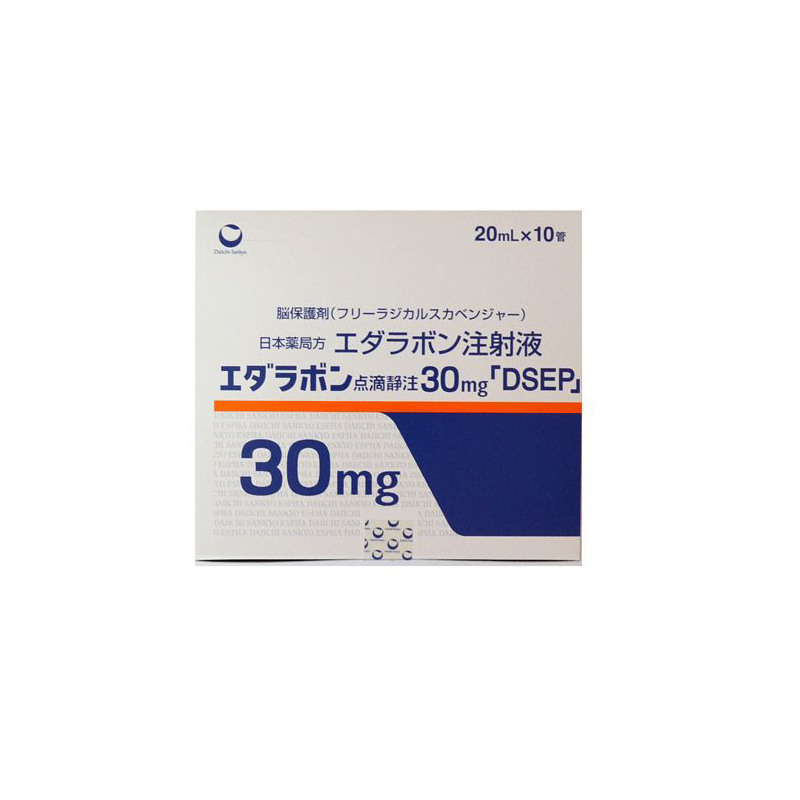Edaravone (Daiichi Sankyo) vs Relyvrio (sodium phenylbutyrate and taurursodiol)
Edaravone (Daiichi Sankyo) vs Relyvrio (sodium phenylbutyrate and taurursodiol)
Edaravone (marketed as Radicava by Daiichi Sankyo) is an intravenous medication approved by the FDA for the treatment of amyotrophic lateral sclerosis (ALS), and it works by scavenging free radicals, potentially slowing down the oxidative stress thought to be involved in ALS progression. Relyvrio (formerly known as AMX0035), which combines sodium phenylbutyrate and taurursodiol, is an oral medication also approved for ALS, and it is designed to reduce neuronal cell death by mitigating endoplasmic reticulum and mitochondrial stress. When deciding between the two, patients should consider factors such as the route of administration (IV vs. oral), potential side effects, the specific mechanism of action, and their healthcare provider's recommendation based on their individual health profile and disease progression.
Difference between Edaravone and Relyvrio
| Metric | Edaravone (Daiichi Sankyo) | Relyvrio (sodium phenylbutyrate and taurursodiol) |
|---|---|---|
| Generic name | Edaravone | Sodium phenylbutyrate and taurursodiol |
| Indications | Amyotrophic lateral sclerosis (ALS) | Amyotrophic lateral sclerosis (ALS) |
| Mechanism of action | Free radical scavenger | Not fully understood; proposed mechanisms include mitochondrial function improvement and reduction of neuronal cell death |
| Brand names | Radicava, Radicut | Relyvrio |
| Administrative route | Intravenous infusion | Oral |
| Side effects | Bruising, gait disturbance, headache, skin inflammation, eczema | Diarrhea, abdominal pain, nausea, upper respiratory tract infection, fall |
| Contraindications | Hypersensitivity to edaravone or any of the excipients | Hypersensitivity to any component of the product |
| Drug class | Free radical scavenger | Combination of amino acid derivative and bile acid derivative |
| Manufacturer | Daiichi Sankyo | Amylyx Pharmaceuticals |
Efficacy
Edaravone (Daiichi Sankyo) and Its Efficacy in ALS
Edaravone, marketed by Daiichi Sankyo, is a medication that has shown efficacy in the treatment of Amyotrophic Lateral Sclerosis (ALS), a progressive neurodegenerative disease. The drug is believed to work by scavenging free radicals, which are potentially harmful compounds that can damage cells and tissue. Edaravone was approved by the U.S. Food and Drug Administration (FDA) in 2017 for the treatment of ALS based on clinical trials that demonstrated its ability to slow the decline in physical function in patients with ALS. Specifically, a six-month clinical trial showed that patients receiving Edaravone experienced less decline in physical function compared to those receiving a placebo.
Relyvrio (sodium phenylbutyrate and taurursodiol) and Its Efficacy in ALS
Relyvrio, which is a combination of sodium phenylbutyrate and taurursodiol, is another medication that has been found to be effective in the treatment of ALS. This combination drug works by reducing neuronal cell death and improving mitochondrial function. The FDA approved Relyvrio for the treatment of ALS in 2022. The approval was based on a randomized, double-blind, placebo-controlled trial that showed that patients taking Relyvrio had a slower rate of decline in a clinical assessment of daily functioning compared to those taking a placebo. The trial also indicated that Relyvrio could extend survival in ALS patients.
Comparative Efficacy in ALS Management
When comparing the efficacy of Edaravone and Relyvrio, it is important to note that both drugs have been shown to slow the progression of ALS, but they do so through different mechanisms of action. Edaravone acts as a free radical scavenger, while Relyvrio is believed to protect neurons and improve mitochondrial function. While both drugs have been approved based on their ability to slow the decline in physical function, head-to-head trials comparing the efficacy of Edaravone and Relyvrio have not been conducted, making it difficult to directly compare their effectiveness.
Conclusion
In conclusion, both Edaravone and Relyvrio have demonstrated efficacy in the treatment of ALS by slowing the progression of the disease and potentially extending patient survival. However, the choice of treatment should be individualized based on patient-specific factors, and the decision should be made in consultation with a healthcare provider who specializes in the management of ALS. Ongoing research and clinical trials continue to evaluate the long-term efficacy and safety of these medications, as well as their potential use in combination with other treatments for ALS.
Regulatory Agency Approvals
Edaravone
-
Pharmaceuticals and Medical Devices Agency (PMDA), Japan

Relyvrio
-
Food and Drug Administration (FDA), USA

Access Edaravone or Relyvrio today
If Edaravone or Relyvrio are not approved or available in your country (e.g. due to supply issues), you can access them via Everyone.org.
How it works

Make an enquiry
Choose the medicine you want to buy, answer a couple of questions, and upload your prescription to speed things up. We’ll get back to you within 24 hours.


Make an enquiry
Choose the medicine you want to buy, answer a couple of questions, and upload your prescription to speed things up. We’ll get back to you within 24 hours.


Breeze through the paperwork
We'll guide you through the required documents for importing unapproved medicine, ensuring you have all the necessary information.


Get a personalized quote
We’ll prepare a quote for you, including medicine costs and any shipping, administrative, or import fees that may apply.


Receive your medicine
Accept the quote and we’ll handle the rest - sourcing and safely delivering your medicine.

Some text on this page has been automatically generated. Speak to your physician before you start a new treatment or medication.
Let's talk
If you have any questions, call us or send us a message through WhatsApp or email:
Contact us




